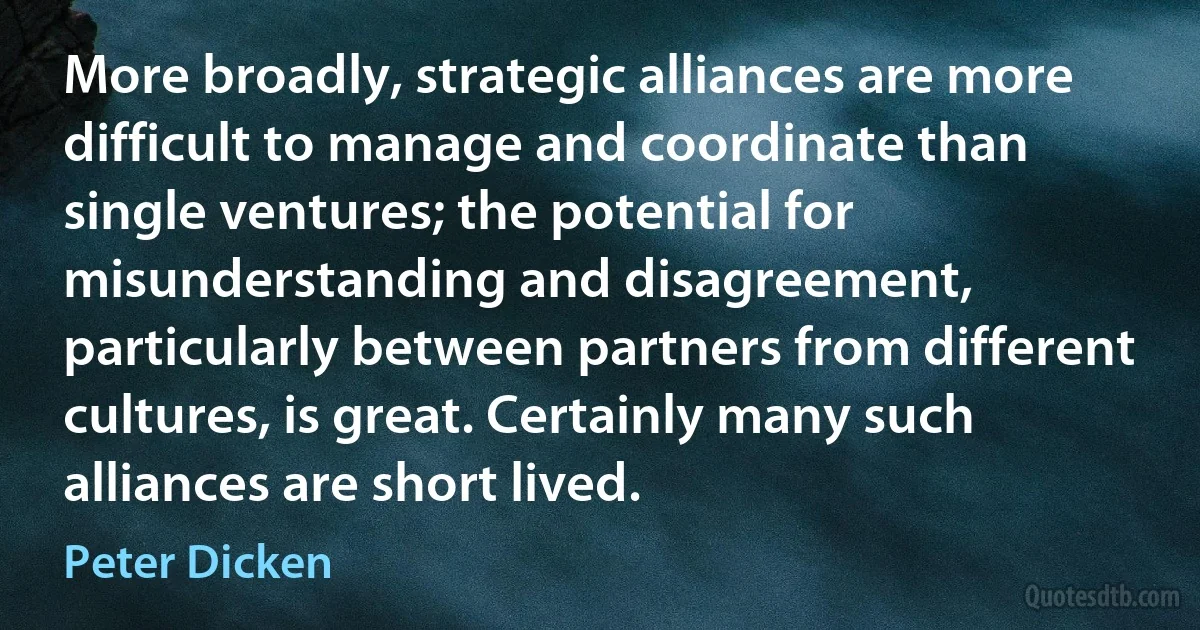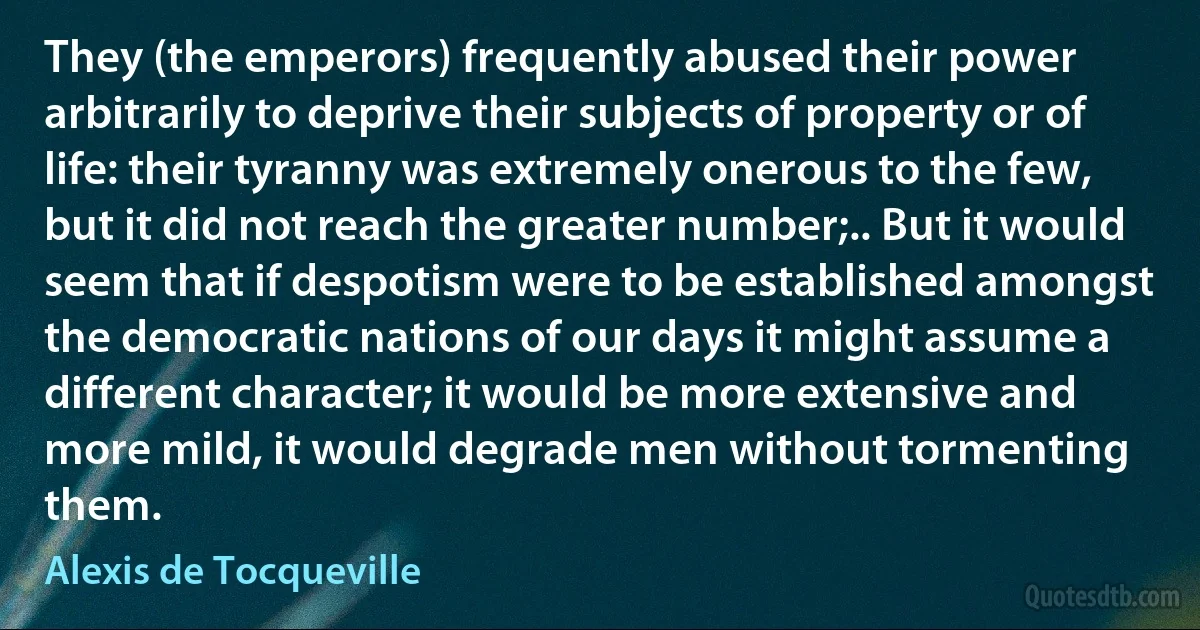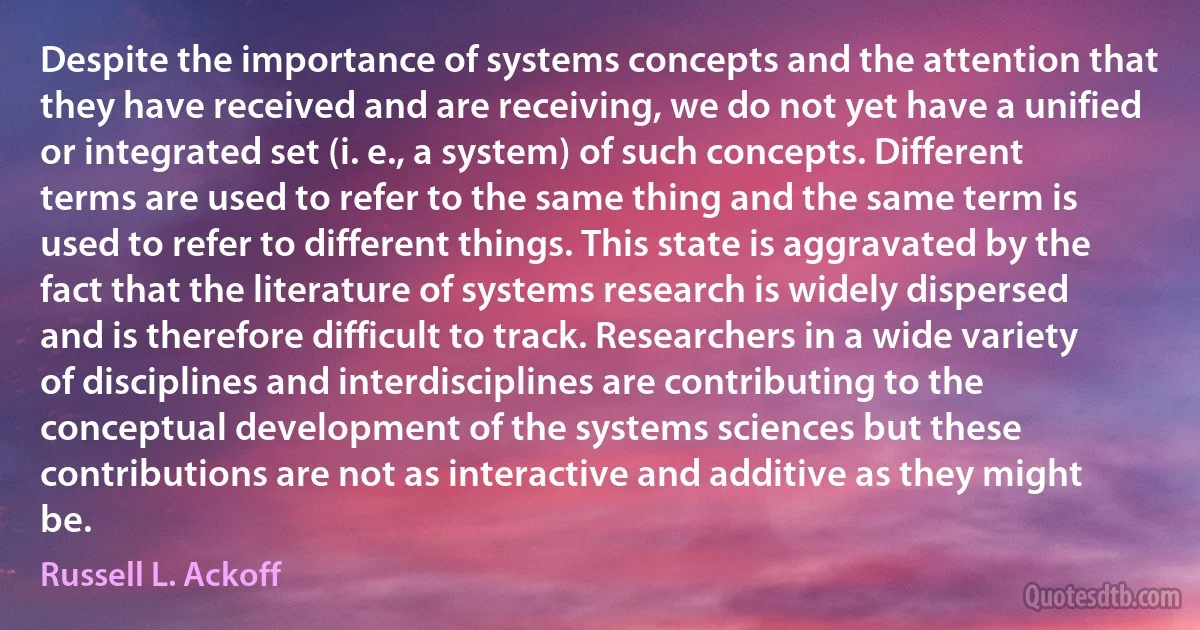Different Quotes - page 97
Perhaps the profoundest cause of disagreement with the Narodniks is the difference in our fundamental views on social and economic processes. When studying the latter, the Narodnik usually draws conclusions that point to some moral; he does not regard the diverse groups of persons taking part in production as creators of various forms of life; he does not set out to present the sum-total of social and economic relationships as the result of the mutual relations between these groups, which have different interests and different historical roles.

Vladimir Lenin
In particular, a free market and capitalism, both subject to state control, are now being permitted and are developing; on the other hand, the socialised state enterprises are being put on what is called a profit basis, i. e., they are being reorganised on commercial lines, which, in view of the general cultural backwardness and exhaustion of the country, will, to a greater or lesser degree, inevitably give rise to the impression among the masses that there is an antagonism of interest between the management of the different enterprises and the workers employed in them.

Vladimir Lenin
There were no roads connecting different colonies and different parts of the same colony in a manner that made sense with regard to Africa's needs and development. All roads and railways led down to the sea. They were built to extract gold or manganese or coffee or cotton. They were built to make business possible for the timber companies, trading companies, and agricultural concession firms, and for white settlers. Any catering to African interests was purely coincidental.

Walter Rodney
The opportunity presented by European slave dealers became the major (though not the only) stimulus for a great deal of social violence between different African communities and within any given community. It took the form more of raiding and kidnapping than of regular warfare, and that fact increased the element of fear and uncertainty.

Walter Rodney
I think you need inspiration, motivation from different angles to keep you going, because it isn't that simple just to wake up every morning and go for another travel around the world, another practice, all these other things; another fitness workout, another stretch. It's always nice, but you need to have some success and you need to have the right reasons why you're doing it. I think I've always been able to do that and I really enjoy myself out on the court.

Roger Federer
In future... we shall look upon those regions into which we may now penetrate by means of such large telescopes, as a naturalist regards a rich extent of ground or chain of mountains containing strata variously inclined and directed, as well as consisting of very different materials. The surface of a globe or map therefore will but ill delineate the interior parts of the heavens.

William Herschel
In consequence of this arrangement I began to construct the forty-foot telescope about the latter end of 1785. The woodwork of the stand and machines for giving the required motions to the instrument were immediately put in hand. In the whole of the apparatus none but common workmen were employed, for I made drawings of every part of it, by which it was easy to execute the work, as I constantly inspected and directed every person's labor; though sometimes there were not less than forty different workmen employed at the same time. While the stand of the telescope was preparing, I also began the construction of the great mirror, of which I inspected the casting, grinding, and polishing, and the work was in this manner carried on with no other interruption than that occasioned by the removal of all the apparatus and materials from where I then lived, to my present situation at Slough.

William Herschel
To conclude, if we call light, those rays which illuminate objects, and radiant heat, those which heat bodies, it may be inquired whether light be essentially different from radiant heat? In answer to which I would suggest that we are not allowed, by the rules of philosophizing, to admit two different causes to explain certain effects, if they may be accounted for by one. ...If this be a true account of the solar heat, for the support of which I appeal to my experiments, it remains only for us to admit that such of the rays of the sun as have the refrangibility of those which are contained in the prismatic spectrum, by the construction of the organs of sight, are admitted under the appearance of light and colors, and that the rest, being stopped in the coats and humors of the eye, act on them, as they are known to do on all the other parts of our body, by occasioning a sensation of heat.

William Herschel
The Machine Age's commitment to cause and effect was the source of many dilemmas, including the one involving free will. At the turn of the century the American philosopher E. A. Singer, Jr., showed that science had, in effect, been cheating. It was using two different relationships but calling both cause and effect. He pointed out, for example, that acorns do not cause oaks because they are not sufficient, even though they are necessary, for oaks. An acorn thrown into the ocean, or planted in the desert or an Arctic ice cap does not yield an oak. To call the relationship between an acorn and an oak ‘probabilistic' or ‘non deterministic causality,' as many scientists did, was cheating because it is not possible to have a probability other than 1.0 associated with a cause; a cause completely determines its effect. Therefore, Singer chose to call this relationship ‘producer-product' and to differentiate it from cause-effect.

Russell L. Ackoff
The word model is used as a noun, adjective, and verb, and in each instance it has a slightly different connotation. As a noun "model" is a representation in the sense in which an architect constructs a small-scale model of a building or a physicist a large-scale model of an atom. As an adjective "model" implies a degree or perfection or idealization, as in reference to a model home, a model student, or a model husband. As a verb "to model" means to demonstrate, to reveal, to show what a thing is like.

Russell L. Ackoff
Doing philosophy was an opportunity to learn something new. I expected this to be an adjunct to my practice of architecture. But it turned out the other way. It turned out that the philosophy of science gave me the opportunity to design social systems, and I was more interested in people-oriented systems than in buildings. They were both design, but different kinds of design. I like creating things.

Russell L. Ackoff
Kubrick wasn't making a movie when I was working with him. He was preparing to make a movie, which is something quite different. Part of the charm of working with a director like Kubrick, if there is or was a director like him, was that during the privileged period before he even showed (the script) to the studio, it was just between him and me. You are sort of creating a game in the ball court of theory. There is no film being shot; there is no budget. It was in many ways a very exciting time. It's also very fraught, particularly for a writer, because you don't know if it's going to be of any point.

Frederic Raphael



